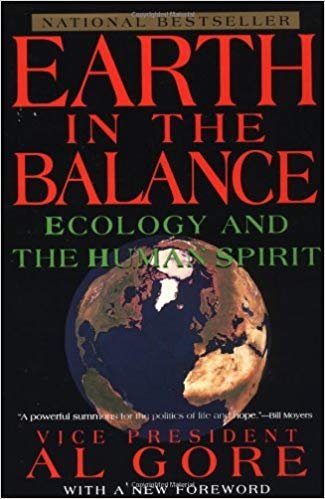There& #39;s a convenient amnesia going around these days—a self-serving memory loss among the chattering classes (of both the Left and the Right) that while they downplayed and denied climate change, thousands of people were making real sacrifices to build awareness and push action.
That convenient amnesia is largely an effort to—now that the climate emergency is undeniable and recognizably all-important—re-center themselves, their constituencies and their own priorities as critical to the climate/sustainability debate they ignored for so long.
Vital to that amnesia is the claim that if they& #39;ve only recently grasped the magnitude of the problem—and the upheavals it entails—it& #39;s because no one knew.
An almost Orwellian historical revision is underway, one that edits out the 50+ year struggle of sustainability advocates.
An almost Orwellian historical revision is underway, one that edits out the 50+ year struggle of sustainability advocates.
That elision not only wipes out a century science—and silences the thousands who were already working to raise awareness and find solutions by the 1970s—it even edits out the degree to which climate change was a major topic of discussion *among elites* in the late 80s, early 90s.
I mean, heck, @algore, then running for Vice President of the United States, published a major, bestselling book on the climate crisis in 1992.
I was a just beginning my career as an environmental journalist at the time, and there were already enough major international meetings, high-level summits and scientific conferences on climate change that you could make a living going from one to another and reporting on them.
The argument that any person in power—or anyone at all—couldn& #39;t have known that back then that this crisis was real, was worsening quickly, and demanded action is bunk.
There is no excuse for inaction, no free pass for those who& #39;ve only recently arrived on the scene.
There is no excuse for inaction, no free pass for those who& #39;ve only recently arrived on the scene.
Perhaps the craziest part of all this is that many of those who should have known—and either chose not to or chose not to act—are now asserting their leadership qualities, while bringing to the table ideas and policies that are often decades out of date.
It& #39;s like they& #39;ve time-traveled back to the people they should have been, and have brought back the present the kinds of stances that would have made sense 20 or 30 years ago.
This climate retro-activism is particularly common on the Left, where folks who& #39;ve been soft denialists for years—or even active supporters of NIMBYism, autocentrism, and Labor predatory delay—are now saying they& #39;re been on the team all along, and should now lead the parade.
I think anyone in public life who& #39;s over the age of 30 and wasn& #39;t taking the climate crisis seriously 10 years ago likely has little to offer now in the way of thought leadership—unless they& #39;re turning their acknowledged lack of awareness into an opportunity to learn in public.
That& #39;s especially true because the nature of the crisis is changing fast, in ways that are hard to understand if you don& #39;t have a deep enough command of the systems and changes involved to understand what ideas are becoming obsolete right now.

 Read on Twitter
Read on Twitter


